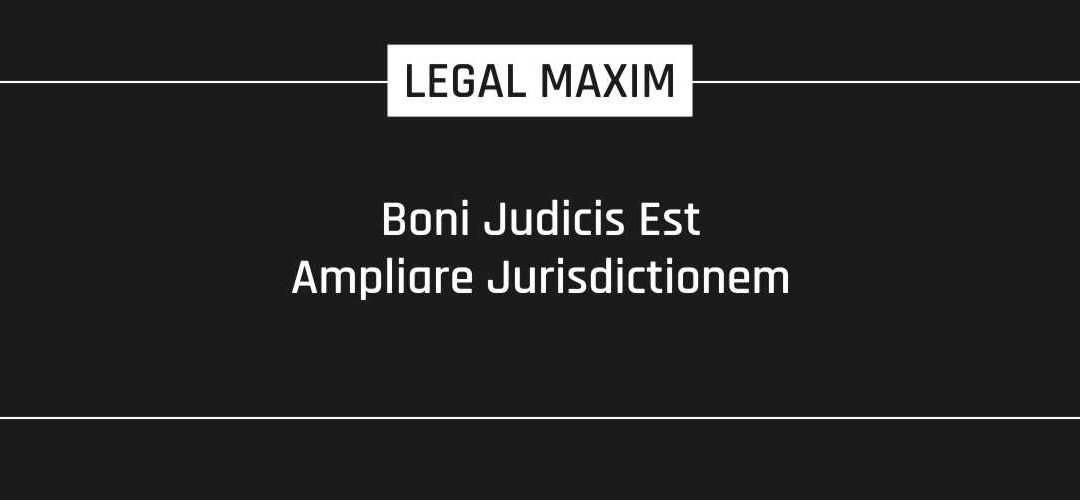Literal Meaning
Good justice is broad jurisdiction
Origin
Latin
Explanation
The maxim refers that a good judge’s duty is to amplify the remedies of the law. The maxim is to amplify its remedies, and without usurping jurisdiction, apply its rules to the advancement of substantial justice. Also, it is the duty of a good judge to enlarge the jurisdiction of his court. In general it is a basic concept of equity which, almost by necessity, is not to be hand-cuffed by the strict terms of common law but, except in a void of rule, may and is allowed to pursue authority even when none existed before to do justice in a situation, if appropriate.
Illustration
If a party to the case drew the support of the above maxim, a judge has the power to develop the remedies and provide a remedial authority. It means a liberal extension of the judge’s power to adjudicate.
Case Laws
In Rex. vs. Philips, 1 Burr. 302. the reasoning of Lord Mansfield on this whole subject is directly in point, as well as the case itself, and contains that beautiful correction by him of a much-abused maxim, in which he says it is the duty of a good judge to amplify justice rather than his jurisdiction, “boni judicis est ampliare jurisdictionem.”
In Brij Mohan Lal vs. Union of India & Ors., the Supreme Court held that “It would fail in its duty if it declines to exercise its jurisdiction in the latter class of cases, solely on the ground that it was a policy decision and, thus, is beyond the limits of judicial review, being a matter primarily within the domain of the Government. Keeping in view its constitutional duty, the constitutional rights of citizens of this country at large and with reference to the facts of a given case, this Court may be duty bound to amplify and extend the arm of justice in accordance with the principle Est boni Judicls ampliare Justiciary non-Jurisdictionem.”
